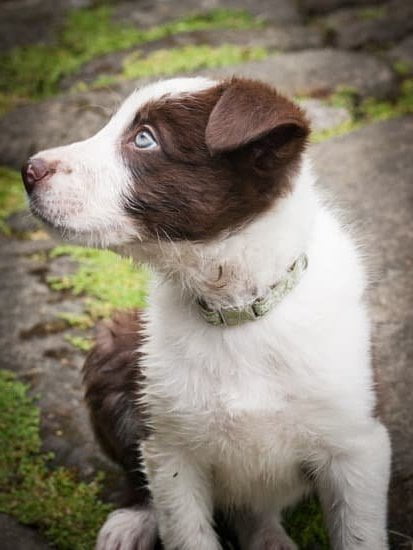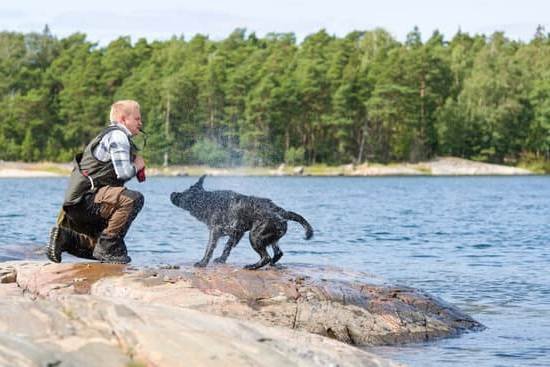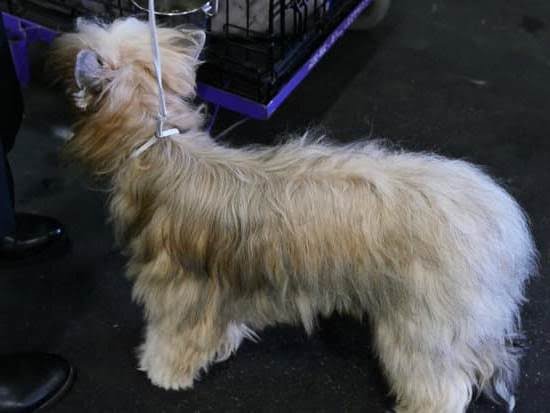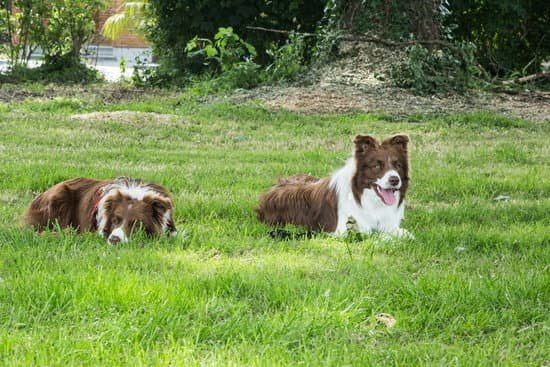Dispelling the myth that only ‘bad’ or untrained dogs poop in the house, and addressing the confusion surrounding why potty trained dogs might still have accidents indoors.
Potty training is an essential milestone for every dog owner. After countless hours of patience, consistency, and positive reinforcement, it can be disheartening when a potty trained dog suddenly has accidents in the house.
Many pet owners find themselves puzzled by this behavior, wondering why their otherwise well-trained canine companion would resort to relieving themselves indoors. In this article, we will dive into the various factors that can contribute to this unexpected behavior and explore ways to prevent and manage indoor accidents.
Firstly, it is important to debunk the common misconception that only ‘bad’ or untrained dogs have accidents in the house. Even with proper training, dogs can still experience setbacks and exhibit toileting habits that surprise their owners. Understanding common triggers and underlying causes behind these accidents can help us better support our furry friends and navigate through these challenging situations.
There are several physical factors that may contribute to indoor accidents in potty trained dogs. Digestive problems such as gastrointestinal upset or dietary sensitivities can disrupt a dog’s normal bowel movements. Additionally, infections affecting the bowels or urinary tract may also cause changes in a dog’s toileting habits. It is crucial for pet owners to recognize these health issues as potential reasons for accidents and seek veterinary advice if necessary.
In addition to physical factors, psychological and behavioral issues can also play a significant role in prompting a potty trained dog to poop in the house. Anxiety and stressors such as separation anxiety or sudden environmental changes can trigger unexpected accidents.
Dogs are highly sensitive animals, easily influenced by changes in routine or disruptions in their living environment. Furthermore, marking behaviors like territorial marking due to anxiety or submissive/excitement urination can contribute to indoor accidents, even in dogs that have been successfully potty trained.
By understanding the complex nature of a potty trained dog’s behavior, we can better equip ourselves to address this issue. In the following sections, we will explore the specific causes behind indoor accidents and provide practical solutions to prevent and manage them.
Remember, accidents do not define a dog’s behavior or training success. With empathy, patience, and appropriate guidance, we can support our beloved pets through these challenging moments and maintain a harmonious living environment for both us and our furry companions.
What Causes a Potty Trained Dog to Poop in the House?
As responsible pet owners, it can be frustrating when our potty trained dogs have accidents indoors. However, it is important to understand that there are various factors that can contribute to this behavior, and it does not necessarily reflect on the dog’s training or character. In this section, we will explore the different causes that may lead to indoor accidents in potty trained dogs.
Physical factors
One possible reason for a potty trained dog pooping in the house is underlying health issues. It is crucial to identify any physical factors that may be causing these accidents. Digestive problems such as gastrointestinal upset or dietary sensitivity can result in a dog having difficulty controlling their bowel movements.
Bowel or urinary tract infections can also affect a dog’s toileting habits and may cause them to have more frequent accidents indoors. Additionally, senior dogs may experience age-related issues that impact their bladder and bowel control.
Psychological factors
Another potential cause of indoor accidents in potty trained dogs is psychological factors such as anxiety and stress. Dogs can become anxious or stressed due to various reasons including separation anxiety when being left alone, environmental changes such as moving homes or introducing new pets, or fear-induced accidents triggered by loud noises like thunderstorms or fireworks. These psychological factors can disrupt a dog’s usual bathroom habits and lead to accidents.
Behavioral factors
Lastly, behavioral factors can play a role in why potty trained dogs poop in the house. Territorial marking behavior is one common reason where both males and females may engage in marking habits indoors even though they are fully trained. Dogs may also mark due to anxiety, insecurity, or trying to assert dominance over their environment.
Submissive/excitement urination is another behavioral factor that can cause indoor accidents. Dogs may lose control of their bladder in moments of overexcitement or display submissive urination as a response to perceived threats or dominance.
By recognizing these different factors that can influence a potty trained dog’s behavior, owners can better address the underlying causes and find appropriate solutions. It is essential to approach accidents with understanding and patience, providing the necessary support and training to help our furry friends overcome these challenges.
Health Issues That Can Contribute to Indoor Accidents in Potty Trained Dogs
Indoor accidents in potty trained dogs can sometimes be attributed to underlying health issues. It is important for owners to understand that digestive problems, bowel or urinary tract infections, and age-related issues can all contribute to a dog’s inability to control their bladder and bowels properly.
One common health issue that can lead to indoor accidents is digestive problems. Dogs may experience gastrointestinal upset or dietary sensitivities that cause them to have loose stools or increased frequency of bowel movements. In these cases, accidents in the house may occur simply because the dog cannot hold it in any longer. Identifying and addressing these digestive issues through dietary changes or medication can help alleviate the problem.
Similarly, bowel or urinary tract infections can also impact a dog’s toileting habits. These infections can cause a sense of urgency and discomfort, making it difficult for the dog to hold their urine or feces until they reach their designated outdoor area. It is important for owners to be aware of the signs of infection, such as frequent urination or straining during elimination, and seek veterinary care promptly.
Senior dogs may also struggle with bladder and bowel control due to age-related issues. As dogs age, their muscles weaken, including those responsible for controlling elimination. This can lead to accidents indoors even if they have been potty trained for years. Providing senior dogs with easy access to appropriate toileting areas, such as puppy pads or a nearby backyard, can help manage this issue.
To address health-related indoor accidents in potty trained dogs:
- Monitor your dog’s digestive health by keeping track of their diet and any observed changes in stool consistency.
- Be observant of any signs of infection, such as changes in urination patterns or discomfort during elimination.
- Take senior dogs for regular check-ups and discuss any concerns about bladder and bowel control with your veterinarian.
By addressing and managing health issues that contribute to indoor accidents, owners can help their potty trained dogs maintain consistent and appropriate bathroom habits.
Anxiety and Stress
It is common for potty trained dogs to have accidents in the house when they are experiencing anxiety or stress. This section will explore how anxiety and stress can impact a dog’s bathroom habits and lead to indoor accidents.
Separation Anxiety
One of the main causes of anxiety-related accidents is separation anxiety. Dogs that struggle with being left alone may become anxious and as a result, may relieve themselves indoors. These accidents typically occur shortly after the owner leaves and are not due to a lack of potty training. Separation anxiety can be particularly challenging because it requires addressing the underlying issue rather than focusing solely on potty training.
Environmental Changes
Environmental changes can also trigger anxiety in dogs and result in indoor accidents. Moving homes, introducing new pets into the household, or rearranging furniture can disrupt a dog’s sense of security and cause them to regress in their toileting habits. It is essential to provide extra support, reassurance, and stability during times of change to help alleviate any potential stress-related accidents.
Fear-Induced Accidents
Loud noises such as thunderstorms or fireworks can scare dogs and cause them to lose control of their bladder or bowels, even if they are potty trained. Fear-induced accidents can be distressing for both the dog and their owner, but it is important to remember that this behavior is not indicative of a lack of training or discipline.
Providing a safe space for your dog during times of heightened fear or using calming techniques such as white noise machines or pheromone diffusers may help mitigate these accidents.
It is crucial to understand that anxiety-related accidents are not a reflection of a dog’s training or behavior but rather a response to their emotional state. Patience, empathy, and providing appropriate support will go a long way in helping your dog overcome these challenges.
In cases where anxiety persists despite your best efforts, seeking professional help from a veterinarian or animal behaviorist can provide further guidance and support. Remember, accidents happen to even the most well-trained dogs, and it is our role as owners to support and care for them through these difficult times.
Changes in Routine
When it comes to potty trained dogs having accidents in the house, changes in routine can play a significant role. Dogs thrive on consistency and predictability, so any disruptions to their daily schedule can affect their toileting habits. Whether it is alterations in feeding times, walk schedules, or bathroom breaks, these changes can lead to indoor accidents. Understanding the impact of changes in routine on a potty trained dog’s behavior is essential for effectively managing and preventing accidents.
One common scenario where changes in routine can result in indoor accidents is a disrupted schedule. Dogs become accustomed to a regular routine and rely on it when it comes to knowing when and where they should go potty.
If there are unexpected delays or deviations from their usual schedule, such as being stuck in traffic during their regular walk time or having their mealtime pushed back significantly, dogs may not be able to hold their bladder or bowel movements until they can access the appropriate outdoor area.
Emergency situations can also have a profound impact on a potty trained dog’s toileting behavior. Sudden events such as unexpected visitors, loud noises like fireworks or thunderstorms, or even household accidents can startle a dog and cause them to lose control of their bladder or bowels. In these instances, the dog’s focus and attention are redirected towards the emergency situation rather than holding it until they reach an appropriate outdoor spot.
| Possible Changes in Routine | Impact on Potty Trained Dogs |
|---|---|
| Disrupted Schedule | Dogs may not be able to hold their bladder/bowel movements if there are unexpected delays or changes. |
| Emergency Situations | Dogs can lose control due to sudden events or disruptions that startle them. |
| Travel and Holidays | Unfamiliar surroundings during trips or holidays may cause dogs to relieve themselves indoors. |
During travel or holidays, the change in environment can also contribute to indoor accidents. Dogs rely on familiar scents and landmarks to identify appropriate potty spots. When they are in a new location, they may struggle to transfer their potty training skills, resulting in accidents indoors. It’s important for dog owners to be patient during these times and offer consistent opportunities for the dog to relieve themselves outside.
To mitigate the impact of changes in routine on a potty trained dog’s toileting behavior, establishing a consistent schedule is essential. Keep feeding times, walk schedules, and bathroom breaks as close as possible to their usual routine even when other aspects of life become hectic. Anticipating potential changes and providing extra opportunities for the dog to relieve themselves in case of disruptions can also help prevent accidents.
In summary, changes in routine can have a significant impact on a potty trained dog’s toileting behavior. Whether it is a disrupted schedule, emergency situations, or unfamiliar environments during travel or holidays, dogs may have accidents due to these changes. By understanding the effect of routine disruptions on dogs and implementing strategies such as maintaining consistency and offering additional bathroom opportunities, pet owners can effectively prevent indoor accidents and support their potty trained dogs through challenging periods.
Territorial Marking
Potty trained dogs are typically expected to relieve themselves outdoors, but sometimes even the most well-trained dogs may have accidents indoors. One possible reason for indoor accidents in potty trained dogs is territorial marking. Territorial marking is a natural instinct for dogs and can occur in both males and females.
When a dog engages in territorial marking, they are essentially claiming an area as their own. This behavior involves urinating or defecating on objects or surfaces within their environment. While it may seem frustrating to find these unwanted accidents in the house, it’s important to understand why dogs engage in this behavior.
One common cause of territorial marking is the dog’s attempt to establish dominance and assert control over their surroundings. This can be triggered by various factors such as the presence of unfamiliar people or animals, changes in the household dynamics, or even new furniture or belongings being introduced into the home. Additionally, dogs that feel anxious or insecure may resort to territorial marking as a way to make themselves feel more secure and establish boundaries.
To address and prevent territorial marking indoors, it’s crucial to provide proper training and guidance to our potty trained dogs. Consistent obedience training is essential to reinforce desirable behaviors and discourage unwanted ones. Some practical solutions include:
- Ensuring that your dog has plenty of opportunities for exercise and mental stimulation.
- Continuously reinforcing basic obedience commands such as “sit,” “stay,” and “leave it.”
- Providing appropriate outlets for your dog’s natural instincts, such as by providing designated areas for digging or scent marking outside.
- Utilizing positive reinforcement techniques when your dog uses designated outdoor areas for elimination.
- Cleaning up any accident spots thoroughly with enzymatic cleaners that neutralize odors, as residual scents can actually encourage further marking.
By understanding the underlying reasons behind territorial marking, implementing consistent training techniques, and creating an environment that minimizes stress and anxiety triggers, dog owners can help prevent unwanted accidents in the house and support their potty trained dogs in maintaining appropriate bathroom habits.
| Causes of Territorial Marking | Prevention Strategies |
|---|---|
| Dog’s attempt to establish dominance | Provide consistent obedience training to reinforce appropriate behaviors |
| Anxiety or insecurity in the dog | Create a secure and stress-free environment, provide mental stimulation |
| Changes in household dynamics or introduction of new items | Gently introduce new objects or people, gradually expose the dog to changes, provide adequate supervision |
Submissive or Excitement Urination
When it comes to accidents in potty trained dogs, submissive or excitement urination can be a common occurrence. Understanding the causes behind these incidents can help dog owners address the issue effectively and provide proper training and care for their furry friends.
Submissive urination is a behavior displayed by dogs as a way to pacify or appease those they perceive as dominant or threatening. This often occurs during greetings or interactions with unfamiliar people or animals. Dogs with low self-confidence are more prone to submissive urination, and it is more commonly seen in puppies but can also persist into adulthood. The act of submissively urinating is involuntary and unintentional, making it challenging for owners to control without proper guidance.
Excitement urination, on the other hand, happens when dogs become overly excited and lose bladder control momentarily. This typically occurs during moments of high arousal, such as when greeting their owners after being separated for some time or when engaging in playtime. Excitement urination is more common in puppies and young dogs but may fade away as they mature and gain better control over their bladder muscles.
To prevent and manage submissive or excitement urination incidents, there are several tips that dog owners can follow:
- Approach greetings calmly: When approaching your dog after being apart for some time, stay calm and avoid any sudden movements or loud noises that could trigger excitement urination.
- Avoid overwhelming your dog: For dogs prone to submissive urination, it’s essential to create a comfortable environment by minimizing stress triggers. Allow them to approach new people or animals at their own pace and avoid crowded situations until they feel more confident.
- Ensure consistent training: Training exercises that focus on building confidence and reinforcing positive behaviors can help minimize submissive or excitement urination incidents over time. Consistency in training methods is crucial for effective results.
- Minimize punishment: Punishing a dog for submissive urination can worsen the behavior and cause more stress and anxiety. Instead, offer praise and rewards for desired behaviors to build their confidence.
By understanding the causes behind submissive and excitement urination in potty trained dogs, owners can take proactive steps to manage and prevent indoor accidents. Building a supportive environment through consistent training, minimizing stress triggers, and providing positive reinforcement will go a long way in helping dogs overcome this behavioral issue. Remember, accidents do not define a dog’s training success, and with patience and understanding, owners can support their potty trained dogs through challenging periods.
Practical Solutions
Preventing indoor accidents in potty trained dogs requires consistent effort and a proactive approach. By implementing the following practical solutions, pet owners can help their dogs maintain their toilet training success.
Firstly, it is crucial to reinforce basic obedience training. This means continuing to practice commands such as “sit,” “stay,” and “come” to ensure that your dog understands and follows your instructions. Reinforcing these commands can help redirect their behavior if you notice any signs of an impending accident. Rewarding good behavior with treats and praise will also encourage your dog to continue toileting outside.
Establishing a consistent routine is another important aspect of preventing indoor accidents. Dogs thrive on structure and predictability, so maintaining regular feeding times, walk schedules, and bathroom breaks can help them understand when it’s time to go outside. Consistency in routine reduces confusion for the dog and makes it easier for them to hold their bladder until they are taken out.
Creating a comfortable and stress-free environment is also essential in preventing accidents. Identify potential anxiety triggers such as loud noises or environmental changes, and take steps to minimize their impact on your dog. Providing a safe space for them, such as a crate or designated area with familiar bedding and toys, can help alleviate stress. Additionally, consider using calming measures such as pheromone diffusers or anxiety-reducing supplements recommended by a veterinarian.
Conclusion
In conclusion, it is important to support our potty trained dogs through accidents, as they can happen even to the most well-trained dogs. This article has explored various factors that may contribute to a potty trained dog pooping in the house, including physical, psychological, and behavioral factors.
Health issues such as digestive problems, infections, and age-related concerns can all affect a dog’s toileting habits. Understanding these underlying medical conditions can help address and manage indoor accidents effectively.
Anxiety and stress are another significant influence on a dog’s bathroom habits. Separation anxiety, environmental changes, and fear-induced accidents can all lead to potty training regression. Recognizing these triggers and providing appropriate support and training techniques can help alleviate the stressors that contribute to accidents.
Changes in routine also play a role in causing indoor accidents in potty trained dogs. Disrupted schedules, emergency situations, and unfamiliar surroundings during travel or holidays can all disrupt a dog’s usual bathroom routine. By establishing a consistent routine and preparing for unexpected events proactively, we can minimize the chances of accidents occurring.
Ultimately, it is essential to approach our potty trained dogs with empathy, patience, and understanding when accidents happen. Seeking professional help if necessary and remembering that accidents do not define a dog’s behavior or training success are crucial aspects of supporting our furry companions through challenging periods. With continued training reinforcement and the creation of a comfortable and stress-free environment for our dogs, we can navigate through indoor accidents together.
Frequently Asked Questions
Why would a housebroken dog start pooping in the house?
There could be several reasons why a housebroken dog starts pooping in the house. It is important to first rule out any medical issues by consulting with a veterinarian.
If there are no underlying health problems, the change in behavior may be due to various factors such as anxiety or stress, changes in routine or environment, or even a lack of proper training reinforcement. By identifying and addressing the root cause, it is possible to help the dog regain its previous housebreaking habits.
How do I get my potty trained dog to stop pooping in the house?
To get a potty trained dog to stop pooping in the house, it is crucial to reinforce consistent potty training techniques. Start by ensuring that you are providing enough opportunities for your dog to eliminate outside. Stick with a regular schedule for taking them out and supervise their bathroom breaks closely.
Rewarding good behavior with treats and praise can also encourage them to use appropriate outdoor spaces. Additionally, thoroughly clean any indoor accidents using enzymatic cleaners specifically designed for pet messes. Consistency, patience, positive reinforcement, and providing an environment conducive to successful potty training can all contribute to stopping your dog from pooping in the house.
Why is my dog having accidents in the house all of a sudden?
When a previously well-trained dog starts having accidents in the house all of a sudden, it may indicate an underlying issue that needs attention. Take note of any recent changes in their environment or routine that could possibly trigger this change in behavior. Stressors such as separation anxiety, new family members or pets, major changes in daily schedule, or unfamiliar surroundings might contribute to accidents indoors.
It’s essential to rule out any potential medical concerns by consulting with a veterinarian before assuming it is solely behavioral. Addressing these sudden accidents may involve re-establishing consistent routines, reinforcing previous training methods through positive reinforcement, and potentially seeking professional help if needed.

Welcome to the blog! I am a professional dog trainer and have been working with dogs for many years. In this blog, I will be discussing various topics related to dog training, including tips, tricks, and advice. I hope you find this information helpful and informative. Thanks for reading!





